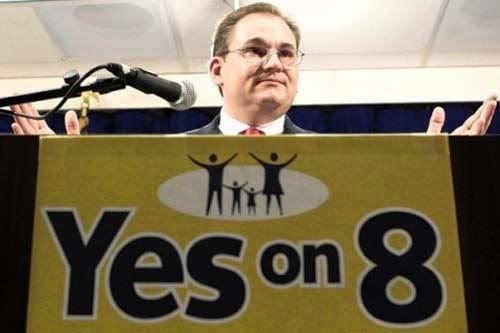November, 2008. I am driving down Chapman Avenue in Fullerton, which is lined with lots of yellow posters proclaiming “Yes on 8.” These signs are referring, of course, to Proposition 8, which would add the following words to the California Constitution: “Only marriage between a man and a woman is valid or recognized in California.”
Prop 8 did indeed pass. Many of its strongest supporters were some variety of Christian. Protestants, Catholics, and Mormons were hugely influential in funding and spreading the word about the virtues of Prop 8 and the importance of “protecting marriage.” But exactly whose definition of marriage was prop 8 protecting? A Christian would most likely say, “The Bible’s definition of marriage.”
When I read the Bible, however, the definition of marriage is about as clear as mud. Let’s start at the beginning. Adam and Eve. The first couple. One man, one woman. God tells them to “be fruitful and multiply.” So far, so good. But what about their children? If Adam and Eve were really the first couple, that would mean that, in order to reproduce, their children would have to marry and have sex with each other. So, from the very beginning of the Bible, the picture of marriage we get is incestual.
Moving right along to the “patriarchs”: Abraham, Isaac, and Jacob. They had multiple wives. Jacob was married to Rachel AND Leah. King Solomon, supposedly the wisest man who ever lived, author of Proverbs, had many, many wives. So the picture of marriage presented here is polygamy.
What about the New Testament? What sort of married life did Jesus have? He was single. What about Paul, author of nearly half of the New Testament? He too, was single, and wrote that the single life is the best life for a Christian. He did give some suggestions for married couples, but Paul, like Jesus, preferred the company of other men (i.e. Barnabus and Silas).
Thus, it is a fair question to ask Christians who supported Prop 8: Which definition of marriage are you protecting? The incestual marriage of Adam and Eve’s children? The polygamy of the patriarchs? The strong male bonds of Jesus and Paul?
I would offer that the definition of marriage most supporters of Prop 8 were defending was neither biblical nor traditional. Rather, it originated just a couple hundred years ago. In an article entitled “Narcissism or Liberation? The Affluent Middle-Class Family,” sociologist Mark Poster writes, “The nuclear family began some two centuries ago, when middle-class members of Western societies began a deliberate effort to separate work from family life, to base the choice of a spouse on romantic love and to make it the personal decision of the prospective partners (as opposed to its being a parental decision based on political or economic strategy), to insist on monogamous sexual relations as the ideal between husband and wife, to commit the partners to lifelong association, to value the social respectability of the marriage over the individual needs of the partners, to separate sharply the roles of husband and wife...and, above all else to create the family residence as a world set apart from the rest of society, a private space for the sharing of intimate experience that, in principle, excluded even close relatives.”
The proponents of Prop 8 assumed that their particular definition of marriage was the “correct” one. But, as it turns out, history, and even the Bible, demonstrate that marriage has radically evolved over time. Whose definition is correct? I have no idea. But the effort to strictly enforce one particular definition (as prop 8 did) seems pretty ludicrous.

